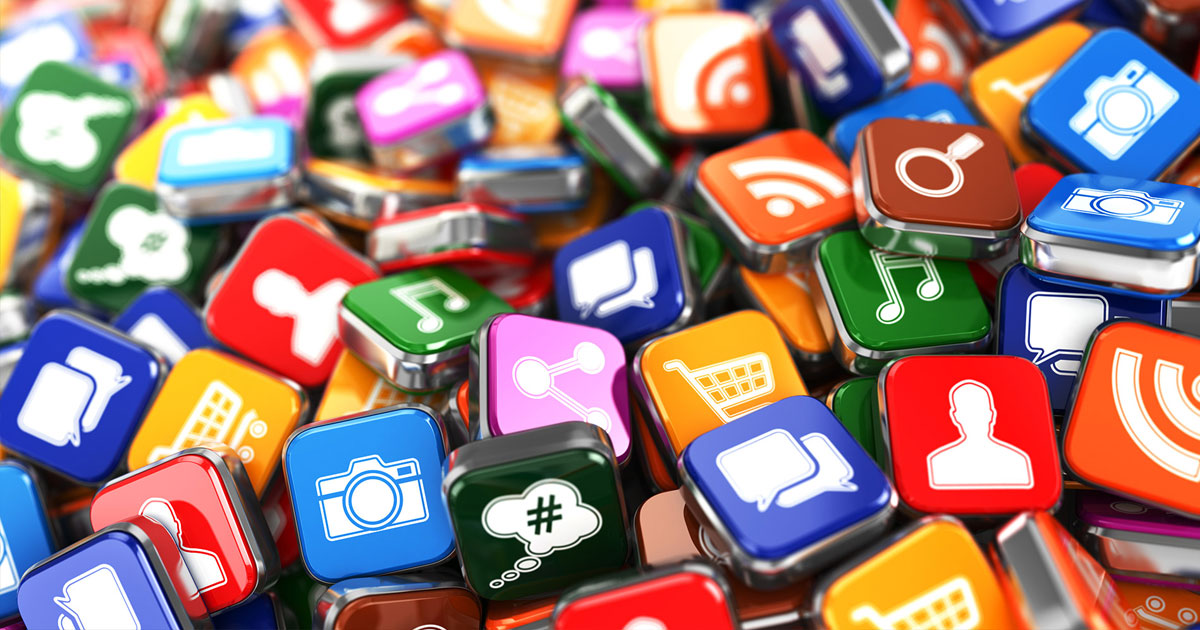Top Ten
The Most Intriguing Tech Disasters In History

Not every innovation is a success. Not every invention instantly makes it to the top of the list. Where do they end up? Not on the failures list but on our list of “How on Earth did that happen?” Here is taking a look at some of the weirdest tech disasters of all time!
1. The Blackberry outage
Back when the Blackberry was one of the largest phones out there, a service outage was a serious issue! One of the major disasters to affect the phone was a service outage in 2011 that left some customers in Europe, the Middle East, Africa, South America, the United States, and Canada without text messaging or internet access for a few days. The outage eventually led many customers to switch to iOS or Android devices. When an analysis was done on what went wrong, this outage was cited as one of the major reasons for the drop in the users of the Blackberry.
2. Grand Theft Auto
Since the beginning of gaming history, gamers have found little hidden treasures and Easter Eggs. However, Grand Theft Auto went a step further. Hackers found sex simulations hidden deep into Grand Theft Auto: San Andreas! The moment this news became public, Rockstar Games suffered. Boxes started gathering dust on the shelves and the revenue fell down drastically! Grand Theft Auto was never the same after this disastrous discovery!
3. Pepsi bottling numbers glitch
During the early 1990s, a Pepsi promotion in the Philippines claimed one lucky customer who found a bottle with the number 349 printed under its cap would win a large sum of money. Unfortunately, a computer glitch caused thousands of number 349 caps to be printed, leading to riots in the streets and even a bombing of a Pepsi plant in the country. Oh Pepsi, you boo boo maker!
4. Apple Mac Portable
Expected to break barriers when it came to portable systems, the 1989 released Apple Mac Portable was anything but that! As heavy as a tree trunk, the portable mac failed miserably. It was so bad, it had to be discontinued in October 1991.
5. The LAX network failure
In 2007, a computer outage at Los Angeles International Airport led to the stranding of 17,000 passengers on international flights for 10 hours. The problem occurred because US Customs authorities could not screen the passengers without the software. It was later revealed the software had not been updated for more than 3 months, causing this unfortunate breakdown.
Technology can be a funny thing. When it takes off, it takes off with a bang. When it fails, the repercussions are disastrous, to say the least. If you think we missed out on any interesting tech disasters, please feel comment and let us know!
Top Ten
Top Ten Most Used Apps During The COVID-19 Lockdown

2020 would go down as an unusual year in this century as no one would have predicted the amount of change which would happen in such a short amount of time. While the year began normally like any other in the past, things began to go haywire when news about a new virus without a cure, began afflicting people in the Wuhan province in China. While the rest of the world thought the virus was an isolated incident, little did anyone guess the same virus would go on to cripple the world economy and medical infrastructure.
As governments across the world tried to race against time in a desperate effort to check the spread of the COVID-19 virus and declared nationwide lockdowns and curfews, consumer interests and dynamics underwent a drastic change. The lockdowns meant the crippling of various industries like transportation (Uber, Grab,) events industry (parties/music events,) hospitality (tourism) and logistics (airlines, hotels) to name a few. The people had to make do with what they had available in hand at their homes which is a smartphone, television, computer and an internet connection.
Social media platforms, fitness applications, gaming applications, video conferencing applications, news applications and grocery delivery applications saw a drastic increase in the downloads as well as usage. In this article we bring to you the top ten most used applications during the lockdown period. This list is compiled in no particular order and we also understand the list might not apply to everyone.
1) TikTok
TikTok ended up being a favourite pastime for millions of Indians as well as other nationalities. The viral app allows users to create short videos which can be shared across multiple platforms. Following the lockdowns Indians were at their creative best on TikTok till the viral app was banned by the government citing data security concerns.
2) Zoom
When the entire country was in lockdown it meant, workplaces and offices were closed. So how did organisations adapt to this change? They conducted meetings both internal and external on the video conferencing app called Zoom. The video conferencing was so widely used worldwide that its stock price grew by a whopping 170% by June 2020.
3) Houseparty
The fun app is a social networking application which lets users gather around in a virtual conference call in order to socialise. Houseparty had over 10 million downloads on Google Play Store and even more on Apple Store (Apple would not divulge the exact number.) Houseparty is currently the third most downloaded app on the iOS app store in the United States, behind Zoom and TikTok, and comes top in the United Kingdom during the lockdown.
4) Aarogya Setu
Aarogya Setu was an app designed by the Indian government to trace the COVID-19 virus and to analyse the spread of the virus. The app reached more than 100 million installs in 40 days since Prime Minister Narendra Modi made it mandatory for it to be installed on smartphones of Indians. The app also provided useful information about nearby hospitals, quarantine protocols and nearby COVID clusters and hotspots.
5) Instagram
The social networking application saw its screen time jump by almost an hour on average. Before the lockdown an individual used to spend on an average of 150 minutes on Instagram and Facebook. However, after one month of lockdown this jumped to 280 minutes a day according to a survey done by Business Today.
ALSO READ: Top Ten Long Standing Indian Brands
6) Twitter
Twitter, although a social media platform, is quite useful to learn about the latest news. Anything latest happening can be first found on Twitter and a quick hashtag will direct a user to the news. This was the reason why Twitter saw a lot of usage as people all over the world tried to stay on top of how the world is coping with the COVID-19 pandemic.
7) PUBG
PUBG was India’s most loved game during the lockdown. PUBG was played by a whopping twenty two lakh people in the month of June 2020 according to Hindustan Times. The battle royale game was enjoying a great run before the Indian Government banned it citing data security concerns. The game developers have since then opened a new corporate office in India as well as data centers and will re enter the Indian market again.
8) Whatsapp
Whatsapp is probably the most widely used texting platform in the world. Data from insights and consulting firm Kantar revealed a 40% increase in usage that grew from an initial 27% bump in the earlier days of the pandemic to 41% in the mid phase.
9) Netflix
Netflix usually enjoys a lot of screen time as people tune in to watch their favourite shows to while away their time. However, with the lockdown, people ended up being cooped up at homes and ended up binge watching a lot of content. According to a pan India study conducted by Velocity MR, Netflix saw a 65% rise in subscriptions.
10) Amazon Prime Video
Amazon Prime Video is a part of the Amazon Prime package which gives customers access to a ton of content and is also the biggest competitor to Netflix. According to a pan India study conducted by Velocity MR, Netflix saw a 67% rise in subscriptions.
Let us know if we missed out on any other applications which you think should be included in this list in the comments below!
Articles
5 Best HR Softwares for Startups And Small Businesses

Human resources are the personnel of a startup or small business and make up for one of most valuable assets for any organisation. Additionally startups often have a dedicated vertical or function which looks after human resources and various other functionalities which come with it like payroll, compliance, hiring, grievances and many more. Over the years, human resources has evolved from just one aspect of hiring to covering a broad spectrum of functions like learning and development, improving productivity and culture in an organisation. Therefore. human resources can become tedious with a lot of manual work involved in payrolls, interview scheduling, leaves and grievance management and therefore tend to take a lot of valuable time which could be used elsewhere. Therefore automating these processes can free up time as well as streamline the entire processes.
This is where a Human Resource Management System (HRMS) comes into play. HRMS refers to a platform which helps the HR department in planning, organising and controlling the workforce, recruitment, staffing, payroll, announcements, policy changes as well as functioning as a repository of important human resources information.
We have compiled a list of five best HRMS softwares for startups and small businesses. Read more to find out about them.
1) Gusto
Gusto HRMS offers customised services for each business. The HRMS platforms handles payroll, insurance, onboarding, employee finance tools and time tracking. Gusto is not just any simple HRMS tool, and what sets them apart is their financial advisors which let startups plan their insurances and taxes according to the budget they have in mind as well as a handy service which lets employees manage their finances better.
2) Namely
Namely is a HRMS provider who prides itself on being able to cater extensively to medium sized businesses by streamlining their HR processes. Namely believes in enabling startups and mid sized businesses to make data driven decisions in all aspects of their HR functions. Namely can cater to organisations who have employees from the range to fifty to a thousand.
3) Zoho People
Zoho People is an online Human Resource Management System designed to manage and access all your employee data from a centralized location. Zoho People does not need a separate software which needs to be installed and instead operates from the cloud. Zoho People provides modules for Employee self service, leave management, timesheets, attendance management and HR automation to name a few. Zoho People even offers a thirty day free trial in order to convince startups on their HRMS tool.
ALSO READ: 8 Best Free CRM Solutions For Startups
4) Bamboo HR
BambooHR is designed with small and medium sized businesses in mind. This HRMS tool offers modules for onboarding, hiring, compensation and a special module for culture. The culture module provides a new approach to performance management and the latest tools for measuring engagement and driving organisational behaviour. Bamboo HR also provides a free trial for startups and offers pricing depending on the size of an organisation.
5) Zenefits
Zenefits simplifies the process of curating, and providing great benefits to employees from comprehensive healthcare plans to useful perks like commuter benefits. Zenefits also provides a fourteen day free trial for startups with most of its features available in order to convince the organisation to opt for their HRMS.
This concludes the list of Best HRMS platforms available in the market for startups and medium sized businesses. Let us know if you are already using any of these HRMS tools or plan on using them in the future in the comments below.
Articles
8 Best Free CRM Solutions For Startups

A startup has to face many hurdles in the beginning due to bootstrapping, scalability and identifying market needs and fit for their product or service. Normally a startup has very little manpower in order to reduce their burnout rate (tracking the amount of monthly cash that a company spends before it starts generating its own income.) This means every member should don multiple hats and oversee multiple responsibilities. A good startup and its founders would make the wise decision to find processes which need automating and will make the shift so as to give them room to employ skills elsewhere. For example, if a startup relies on high volume sales from a regular customer, it makes sense to automate the process of invoicing and sales. Payroll and attendance can be linked and automated on a common dashboard. This is where customer relationship management (CRM) comes into the picture. To a layman, CRM is a tool or a strategy which helps businesses organise or strategically manage their customer data. Data was previously stored in databases on single computers but with the advent of the internet, digital marketing and cloud computing, accessing data has never been easier, thereby making life easier for startups.
A CRM platform or a tool in the current era is a software which connects different departments from front office to back office and organises notes/data, metrics, analytics into one smooth and cohesive ecosystem. Every user has direct access to real time client and internal data which lets startups add a personalized approach to clients. For example if a startup has recurring monthly salessale from an individual customer, the tool can generate an invoice monthly as well as allowing the freedom to include a gift on special occasions for recurring customers.
In this article we give a list of 8 best and free CRM solutions for startups looking to scale up.
1) Hubspot
Hubspot is a CRM tool which offers complete toolkits and integrations which lets startups increase leads, accelerate sales and streamline customer services. They have a CRM offering for sales, marketing, services and content management which lets startups choose what works best for them.
2) Zoho CRM
Zoho CRM tool lets startups customize their requirements to suit specific needs. The CRM is designed for individual functions like process management, sales automation, marketing automation, predictive sales and many more letting the startups choose the best tool for their organisation. The CRM tool can be used by startups from any kind of industry and is used by some of the world’s largest organisations like Amazon and Ola.
3) Insightly
Insightly prides itself on being the best CRM tool for startups which rely on G Suite and Microsoft Office 365. Insightly provides CRM software for businesses of all sizes across a range of industries such as manufacturing, consulting, professional services, media and advertising, non profit, technology and others.
4) Flowlu
Flowlu offers CRM solutions for businesses by providing essential tools for efficient business management from projects to sales and marketing. Instead of having a different program for lead generation, accounting, and human resources, Flowlu puts everything on the cloud.The CRM also offers tools for financial management.
ALSO READ: How To Increase Online Sales Of A Business
5) Freshworks
Freshworks or Freshsales as it iswas formerly known, is a CRM provider with powerful integrations. Startups would benefit from this CRM as they have a free offering and also by providing the option to upgrade the services. This option shows the kind of trust Freshworks has in its CRM platform.
6) Really Simple Systems
Really Simple Systems makes CRM software targeted at small businesses which follow a business to business (B2B) model. Their free offering is aimed at startups looking to manage and track their leads and customers. What is even better is this feature is free for startups forever.
7) Agile CRM
Agile’s free CRM is targeted at small and medium sized startups and is free for the first ten users. The CRM offers tools for increasing sales and for automating marketing.
8) Suite CRM
Suite CRM offers unlimited users in its free version for thirty days allowing startups to have ample time to think onabout the CRM tool. Following the thirty day free trial startups can make a purchase from three plans which will suit their business needs perfectly.
This concludes the list of free CRM tools which are currently the best available in the markets for startups. Let us know if you are already using any of these CRM tools or plan on using them in the future in the comments below.












u6sd1
June 7, 2025 at 5:44 am
clomid cost uk cost of generic clomid clomiphene one fallopian tube where buy generic clomid tablets can i buy generic clomid without prescription where can i buy cheap clomiphene price how can i get cheap clomiphene no prescription
MM88
November 7, 2025 at 11:06 pm
Với giao diện mượt mà và ưu đãi hấp dẫn, MM88 là lựa chọn lý tưởng cho các tín đồ giải trí trực tuyến.
ios超级签
November 8, 2025 at 1:05 pm
苹果签名,苹果超级签平台,ios超级签平台ios超级签苹果企业签,苹果超级签,稳定超级签名
J88
November 9, 2025 at 2:00 pm
Đến với J88, bạn sẽ được trải nghiệm dịch vụ cá cược chuyên nghiệp cùng hàng ngàn sự kiện khuyến mãi độc quyền.
Kuwin
November 14, 2025 at 11:58 pm
kuwin sở hữu kho game đa dạng từ slot đến trò chơi bài đổi thưởng, mang đến cho bạn những giây phút giải trí tuyệt vời.
iwin
November 23, 2025 at 5:09 pm
iwin – nền tảng game bài đổi thưởng uy tín, nơi bạn có thể thử vận may và tận hưởng nhiều tựa game hấp
GO88
November 29, 2025 at 12:56 pm
Tham gia cộng đồng game thủ tại Go88 để trải nghiệm các trò chơi bài, poker phổ biến nhất hiện nay.